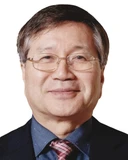
Recently, triggered by Japanese Prime Minister Sanae Takaichi's remarks regarding Taiwan, China has initiated immediate retaliatory measures across diplomacy, military, and economic sectors, raising tensions in East Asia once again. The simultaneous activation of de facto sanctions such as tourism restrictions, customs delays, and corporate regulations is not merely an expression of dissatisfaction but reveals China's strategic intent to redefine the regional order.
This response reaffirms that China has consistently utilized economic and social measures as tools of sanctions for political purposes. The same pattern of comprehensive pressure that China exerted on Korea during the 2012 Senkaku Islands dispute and the 2017 THAAD incident is being repeated once again. China's unofficial and asymmetric sanctions are no longer exceptional measures but have become a normalized strategy.
In particular, China considers the remarks of neighboring countries regarding the Taiwan issue as infringements on its sphere of influence and demonstrates a strong will to deter. As international relations scholar John Mearsheimer points out, great powers tend to seek to establish independent influence in their surrounding regions. China aims to limit the scope of U.S., Japanese, and Korean engagement regarding Taiwan by applying meticulously designed pressure on countries that exceed its self-imposed 'boundaries of discourse'. This is closer to strategic deterrence than an emotional reaction.
We are not free from this trend either. In the short term, there may be a reflexive effect where some Chinese tourism and consumption shift from Japan to Korea, but in the long term, this incident reaffirms that China's pattern of sanctions can be replicated against us at any time. The THAAD retaliation was not an exceptional variable but an action based on China's strategic inertia, and there is a high possibility that the same pressure will be repeated when deemed necessary.
This situation particularly shatters the illusion among pro-China factions within Korea that “China will treat Korea exceptionally.” China's criteria for action are not based on emotions or historical and cultural intimacy but on thorough calculations of interests. If we begin to restrain our remarks and diplomatic choices out of caution, China may instead regard Korea as a 'country where pressure works', increasing the frequency and intensity of sanctions.
China's strategy can be summarized in three points. First, to bind the Taiwan issue within a China-centered framework to minimize the involvement of neighboring countries. Second, to weaken the regional influence of the U.S. and Japan while strengthening its own leadership. Third, to repeatedly impose economic retaliation to compel governments and companies to self-censor. This is a complex response combining military, diplomatic, and economic pressure, and it is a calculated strategy rather than an accidental reaction.
So what choices should we make? First, we must regard China's pattern of retaliation as a structural constant and substantially reduce our dependence on China in specific industries and items. This is a matter of national security beyond economic policy. Next, the Korea-U.S.-Japan cooperation should not be a choice to antagonize China but should function as a safeguard to protect Korea from sanctions originating from China, thus requiring more sophisticated management. Furthermore, while maintaining communication with China, we must remember that an approach that sacrifices principles to appease may make Korea appear as a 'manageable target', leading to greater risks in the long run.
Ultimately, China's actions are not spontaneous events but a consistent pattern, and this 'retaliation against Japan' is also part of the process of reconstructing the East Asian order. Korea must calmly recognize the changes in the regional order and build practical strategies that are not based on emotions or factional logic. Accurately grasping reality is the starting point of our diplomatic and security strategy.




![[A Point of View, A Line of Thought] Gyeongju APEC Showcases the Universe of K-Culture](https://d3fj3mezw00qfy.cloudfront.net/?url=https%3A%2F%2Fpango-lingo-theggnews-assetsbucket-smreeohr.s3.ap-northeast-2.amazonaws.com%2Farticle-images%2F2025-11-04%2F1283f667-4269-44b1-8120-5085078a9aa1.jpg&w=200&q=85)
![[Chae Seong-jun (Seokyeong University) Review of the Korean Peninsula] In the AI Era, North Korea's Cyber Warfare Shakes National Security](https://d3fj3mezw00qfy.cloudfront.net/?url=https%3A%2F%2Fpango-lingo-theggnews-assetsbucket-smreeohr.s3.ap-northeast-2.amazonaws.com%2Farticle-images%2F2025-11-12%2F426cc93a-2fbb-4a31-9156-8644f98f46bc.jpg&w=200&q=85)

![[Chae Seong-jun (Seokyung University) Review of the Korean Peninsula] China's 'Retaliation Against Japan', A Strategic Warning That Korea Must Be Cautious Of](https://d3fj3mezw00qfy.cloudfront.net/?url=https%3A%2F%2Fpango-lingo-theggnews-assetsbucket-smreeohr.s3.ap-northeast-2.amazonaws.com%2Farticle-images%2F2025-11-21%2Ff89efacc-4375-4750-9520-993c4a0f73df.jpg&w=200&q=85)
![[A Point of View, A Line of Thought] Photographer Kim Yong-ho, the Picasso of Photography](https://d3fj3mezw00qfy.cloudfront.net/?url=https%3A%2F%2Fpango-lingo-theggnews-assetsbucket-smreeohr.s3.ap-northeast-2.amazonaws.com%2Farticle-images%2F2025-11-09%2F952db259-423a-4bb1-a923-e77f872a0e6b.jpg&w=200&q=85)
![[Chae Seong-jun (Seokyung University) Review of the Korean Peninsula] China's 'Retaliation Against Japan', A Strategic Warning That Korea Must Be Cautious Of](https://d3fj3mezw00qfy.cloudfront.net/?url=https%3A%2F%2Fpango-lingo-theggnews-assetsbucket-smreeohr.s3.ap-northeast-2.amazonaws.com%2Farticle-images%2F2025-11-21%2F2d729b04-9c64-4c20-934d-3bd31f26637e.jpg&w=600&q=85)
![[A Point of View, A Line of Thought] Gyeongju APEC Showcases the Universe of K-Culture](https://d3fj3mezw00qfy.cloudfront.net/?url=https%3A%2F%2Fpango-lingo-theggnews-assetsbucket-smreeohr.s3.ap-northeast-2.amazonaws.com%2Farticle-images%2F2025-11-04%2F987b05ff-6ca6-4fe0-84b1-cbb37a4ad47e.jpg&w=600&q=85)
![[Chae Seong-jun (Seokyeong University) Review of the Korean Peninsula] In the AI Era, North Korea's Cyber Warfare Shakes National Security](https://d3fj3mezw00qfy.cloudfront.net/?url=https%3A%2F%2Fpango-lingo-theggnews-assetsbucket-smreeohr.s3.ap-northeast-2.amazonaws.com%2Farticle-images%2F2025-11-12%2F79eb64a0-2bcf-4a7c-8451-8f4179802a39.jpg&w=600&q=85)

![[Chae Seong-jun (Seokyung University) Review of the Korean Peninsula] China's 'Retaliation Against Japan', A Strategic Warning That Korea Must Be Cautious Of](https://d3fj3mezw00qfy.cloudfront.net/?url=https%3A%2F%2Fpango-lingo-theggnews-assetsbucket-smreeohr.s3.ap-northeast-2.amazonaws.com%2Farticle-images%2F2025-11-21%2Fdcde4d04-5106-407a-8588-d2c23089f622.jpg&w=600&q=85)
![[A Point of View, A Line of Thought] Photographer Kim Yong-ho, the Picasso of Photography](https://d3fj3mezw00qfy.cloudfront.net/?url=https%3A%2F%2Fpango-lingo-theggnews-assetsbucket-smreeohr.s3.ap-northeast-2.amazonaws.com%2Farticle-images%2F2025-11-09%2Fbd067c12-c56c-44c0-aaed-ceb2d75bb5da.jpg&w=600&q=85)
![[A Point of View, A Line of Thought] On Humanity and Art in the Age of AI](https://d3fj3mezw00qfy.cloudfront.net/?url=https%3A%2F%2Fpango-lingo-theggnews-assetsbucket-smreeohr.s3.ap-northeast-2.amazonaws.com%2Farticle-images%2F2025-11-17%2F6391b8ff-3104-4123-93fa-b77c3b813430.jpg&w=600&q=85)